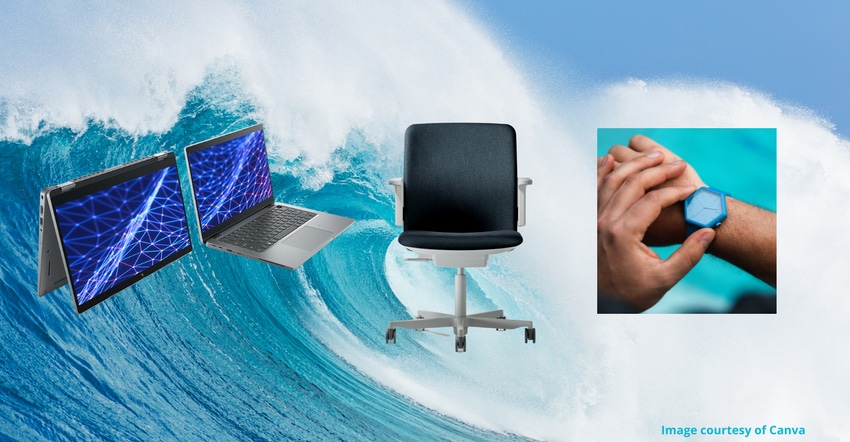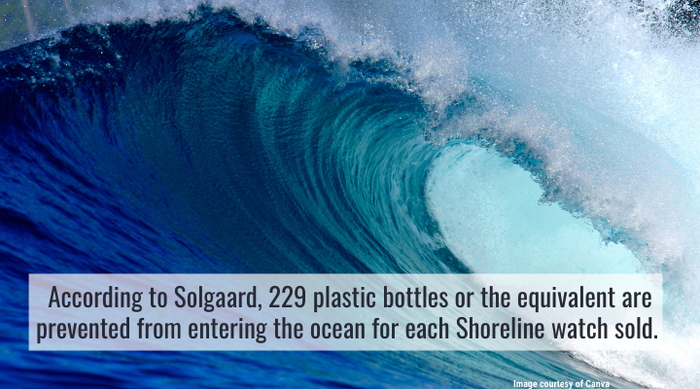NextWave Companies Use Ocean-Bound Plastic in New Products
The consortium’s members are using a growing amount of the reclaimed plastic for consumer goods manufacturing.
April 25, 2022

Members of the NextWave Plastics consortium continue to make progress in the ocean-bound plastics segment of the circular economy, diverting these plastics from oceans for use in consumer goods like office furniture, watches, payment cards, and computers.
In its 2021 annual report, the consortium states that it has diverted 2,316 tonnes/2,553 tons of plastic from the ocean in four years. In addition, NextWave saw a 98% increase in annual diversion of ocean-bound plastics in 2021 over 2020.
A key part of NextWave’s strategy is to encourage manufacturing applications for ocean-bound plastics. This year, the group’s 11 member companies — including Humanscale, Solgaard, CPI Card Group, and Dell Technologies — are releasing new products that incorporate ocean-bound plastics.
Office furniture designer and manufacturer Humanscale recently launched its ergonomic Path office chair, which incorporates more than 20 pounds of recycled content. About half of the chair’s recycled content is plastic reclaimed from the ocean, primarily fishing nets. The other half comes from post-consumer plastic bottles and post-industrial material.
“Back in 2018, when we launched the first task chair made of ocean plastic, we proved that this was possible. Since then, we’ve been expanding our ocean plastic program to include more sources, types of plastic, and new products,” says Jane Abernethy, Humanscale’s chief sustainability officer, in a prepared statement.
“We’re very proud to introduce Path as the next step in our journey and to raise the bar for environmental stewardship across our industry,” she adds.

Solgaard is doing its part with the Shoreline Watch Collection of minimalist, Scandinavian-designed timepieces made from recycled ocean-bound plastic collected from beaches and riverways. According to Solgaard, 229 plastic bottles, or the equivalent, are prevented from entering the ocean for each Shoreline watch sold.
“Every new product we create is an opportunity to make a positive impact on our planet. Our new Shoreline Watch Collection is made using ocean-bound plastic sourced through the NextWave Plastics supply chain network,” says Adrian Solgaard, founder and CEO of Solgaard. “On top of that, we’re preventing 200 times more material from entering our oceans, making these timepieces plastic negative.”
In the payment-products and -services industry, CPI Card Group has sold more than 50 million of its eco-focused payment cards since 2019. One of these products, CPI’s Second Wave payment card, features a core made with recovered ocean-bound plastic.
CPI estimates that for every 1 million Second Wave cards it sells, more than one ton of plastic is kept from polluting the world’s oceans, waterways, and shorelines.
PlasticsToday reported this month on Dell’s use of ocean-bound plastics in the updated Latitude 5000 series laptops and packaging. The products are Dell’s highest-volume laptops.
Dell launched its first ocean-bound plastics project in 2017, to create commercial-scale packaging; that initiative has generated more than 5.1 million recyclable packaging trays and end caps.
You May Also Like


